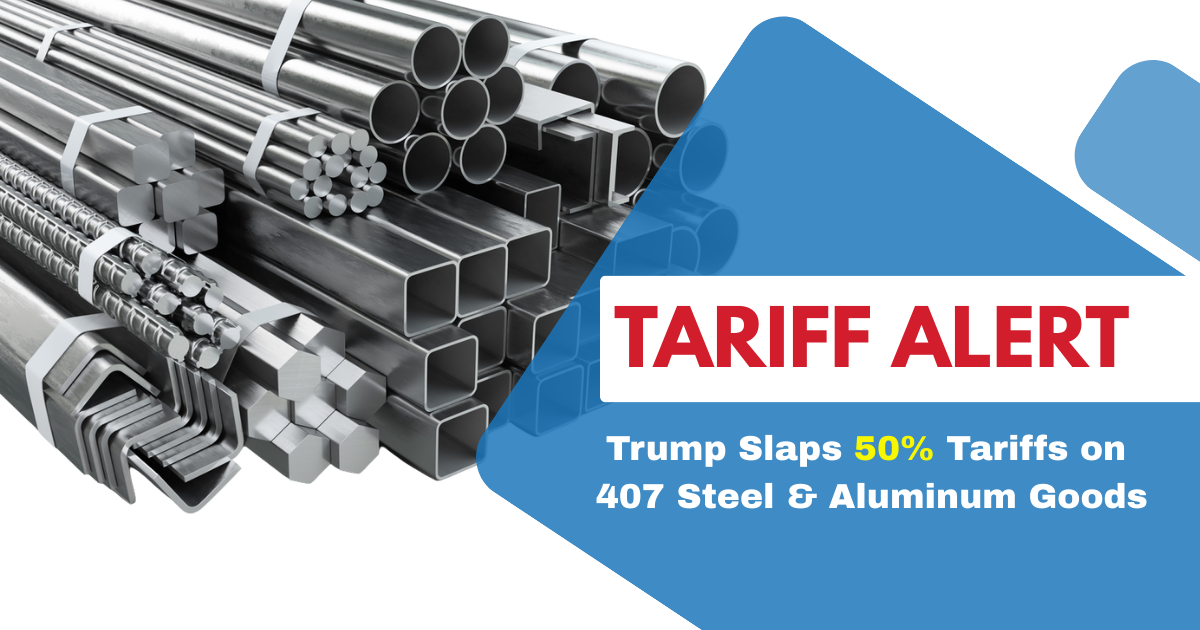India–US Trade Tensions Rise Over Steel and Auto Tariffs NMDC Limited reports a 38% drop in Q4 FY24 consolidated net profit RINL to Raise $23 Million Through Land Sales Amid Crisis

President Donald Trump has expanded Section 232 tariffs to include 407 additional steel and aluminum based products, a move expected to shake up global trade and key U.S. industries. The newly imposed 50% tariffs target items ranging from wind turbine components and mobile cranes to industrial compressors, furniture, and railcars.
This latest action builds on earlier tariffs applied to raw metals and select finished goods, now covering over $328 billion in imports. The administration argues the expansion is vital for protecting national security and supporting U.S. manufacturing.
Industry reactions are mixed. Supporters, including domestic aluminum producers, believe the move will strengthen American industry and level the playing field against unfair imports. However, critics warn of supply shortages, higher costs, and project delays—particularly in construction, transportation, and energy sectors.
Analysts note that while the tariffs may benefit certain manufacturers, they could also disrupt supply chains and strain trade relations with key allies. The long-term impact on infrastructure development and technological growth remains uncertain.
This significant trade shift signals the Trump administration's continued commitment to reshoring industrial capacity—raising critical questions about economic strategy, international diplomacy, and industrial resilience.
Also Read : US warns Mexico over steel, aluminium exports US Open to Talks with India on Steel and Aluminium Tariffs But Not Through WTO